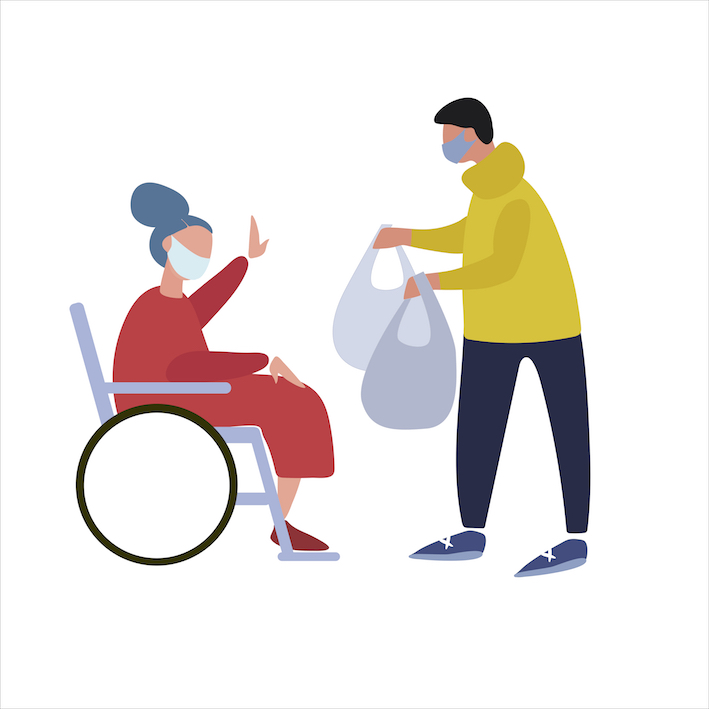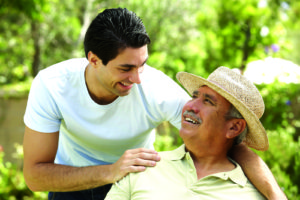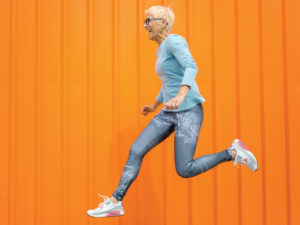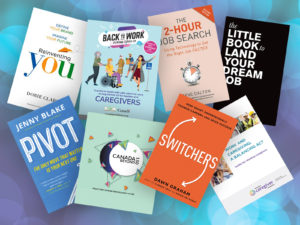BY JEN GIANG
HELP FOR EVERYONE EXCEPT US
Findings from a COVID-19 survey by Independent Living Canada done in May of 2020 focused on the concerns of people with disabilities, staff and volunteers at 24 Independent Living Centres across Canada. Most of the 325 respondents, (50% PWD’s), had grave concerns for personal well being and managing their financial obligations.
The PWD’s were twice as worried about health threats and social isolation. 91% were concerned about transmission and 2/3 felt they were at risk
of not being able obtain grocery supplies or having enough money for food and rent. Within the 80 percentiles of those who expressed concern, over 2/3 were very concerned about:
- Not having access to PPE.
- Not having the right or ability to be immediately tested.
- Not receiving the same level of medical treatment if they were to be hospitalized for COVID-19.
- Not being consulted like others about being treated for COVID-19.
- If a choice had to be made, they would be chosen to die.
- 81% feared not being about to visit the doctor or obtain a normal supply of prescription drugs, thus increasing both co-pay and pharmacy visits.
Full findings: partickcurran@ilc-vac.ca

FLUSHING ISN’T THE ONLY RISK
Before answering nature’s call, experts suggest that you should know your risks and take precautions. According to author Sarah Gibbens, in her recent article, using a public toilet may place you at increased risk given research that suggests that toilet plumes launch germy droplets into the air.
Citing a June study released by from researchers in China who talk about coronavirus-laden particles which are “flung into the air by the watery vortex inside a toilet bowl”, Gibbens suggests that many questions remain about the ‘toilet plume effect.’ Some experts she spoke to believe that there is indeed a likelihood that COVID-19 can be spread by bowel movements leading to accidental consumption of virus particles, a process called fecal-oral transmission.
Alongside a discussion about the real riskiness of restrooms, Gibbens is thoughtfully suggests what readers can do to protect themselves venturing into expert advice that includes: improved public washroom ventilation
with exhaust fans that are always running, more rigorous personal hygiene hand-washing techniques, wearing a mask in the restroom, install lids on toilets and even the recommendation for a new toilet design where the lid is automatically put down before the toilet begins flushing.
Source: National Geographic.

FINE BUT CRAVING CONNECTION
Canadians are anxious and crave real connection but in true Canadian nice-guy style, they still say they are doing fine.
Despite the fact that they are feeling more negative emotions than positive ones these days, (63% negative to 37% positive), when asked, “how they are?” 77% of those questions, say, “they’re doing fine.” According to Canadian Mental Health Association data, released to mark Mental Health Week, Canadians feel more isolated than ever, up eight points in just one month, and 2/3 crave real, meaningful social interactions in their daily life.
The materials presented suggest that even prior to the global pandemic, loneliness was already a major problem and a public health concern. “Most people want more social connection yet they are reluctant to have the kind of honest, open conversations that build the connections they crave says Margaret Eaton, national CEO of CMHA. “In our society it’s a culture norm to ask people how they are doing but not to expect, nor provide a truthful answer. This mental health week it’s time to get real about how we feel. Its clear we need each other more than ever”, she says. “Social connection
will help us recover.”
Source: Cmha.ca





